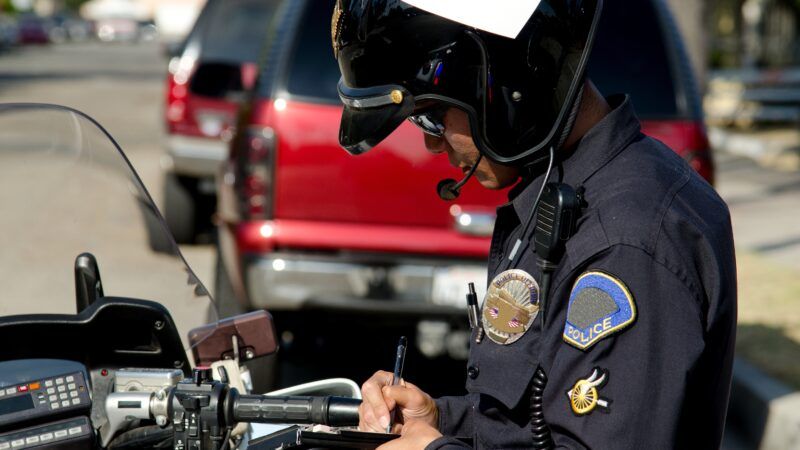California Bill Requires All New Cars To Beep When You Speed
Drivers in the state narrowly avoided an even harsher restriction on their automotive freedom.

On Saturday, a new driver safety law passed the California legislature. Senate Bill 961 requires every passenger vehicle of the 2030 model year and beyond to "utilize a brief, one-time, visual and audio signal to alert the driver each time the speed of the vehicle is more than 10 miles per hour over the speed limit." Passing the Assembly 42–12 and the Senate 26–9, the only thing that stands between S.B. 961 becoming law is Democratic Gov. Gavin Newsom's signature. Once the bill becomes law, violations would not carry mere civil penalties but "would be punishable as a crime."
NPR reports that California state Sen. Scott Wiener (D–San Francisco), who introduced the legislation in January, was surprised by "the intensity" of the pushback. In the NPR piece, Wiener recalled a text from one of his "very best friends in the world" telling him "what a terrible idea [the bill] was" on the day of its announcement as evidence of public disapproval. But an intense response is hardly surprising, in light of the bill's original text.
As introduced, S.B. 961 was about a lot more than just one annoying beep. It called for automatic throttling of speeding vehicles. As introduced, the bill required "the GPS location of the vehicle [to be] compared with a database of posted speed limits, to determine the speed limit, and electronically limi[t] the speed of the vehicle to prevent the driver from exceeding the speed limit by more than 10 miles per hour." As introduced, the bill would have made "every passenger vehicle, motortruck, and bus manufactured or sold in the state" of the 2027 model year and beyond incapable of driving more than 10 miles per hour above the limit.
Ultimately, Wiener relented and amended the bill in April. Given that modern seatbelt alarms require "repetitive, successive, or ongoing warnings each time a vehicle exceeds the speed threshold," Californian drivers have reason to be grateful that such alarms are merely not precluded in the current bill. They also have reason to regard the bill as superfluous.
The most popular phone-based navigation apps, Google Maps, (Apple) Maps, and Waze include visual and auditory signals when drivers go over the speed limit whatsoever. Still, speed signals are optional on these apps, and not everybody is as dependent on Google Maps and CarPlay.
Citing the rise in reckless driving since the pandemic, Wiener emphasizes that "dangerous speeding [is] placing all Californians in danger, and by taking prudent steps to improve safety, we can save lives." The senator's concern for public safety is well taken, but there's already a prudent, private, and voluntary alternative: auto insurance programs that use apps to track driving habits and reward safe drivers with discounted rates. Programs like Allstate's Drivewise, USAA's SafePilot, GEICO's DriveEasy, and State Farm's Drive Safe & Save enrolled 16.8 million North American drivers in 2022, according to market researcher Berg Insight.
Unfortunately, none of these programs are available to Californian drivers. This is due to California Proposition 103, passed by popular initiative in 1988, which "instituted a regulatory system where the Insurance Commissioner must approve a rate applied for by an insurer before its use." The 40-year-old prior-approval system prohibits auto insurers from adjusting rates based on driver behavior.
Before mandating sticks, Californian legislators should allow carrots to incentivize safe driving.


Show Comments (64)